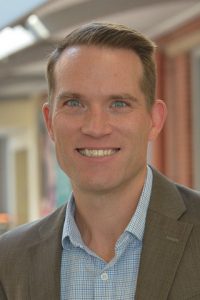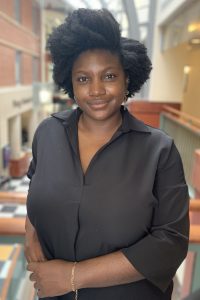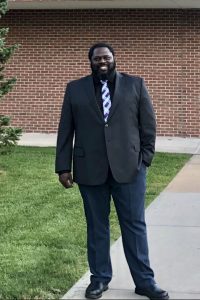
The Higher Education and Student Affairs (HESA) program in the Neag School’s Department of Educational Leadership focuses on building “Scholar-Practitioners.” HESA promotes the development of professional knowledge based on theory and practice, enhanced by personal values, lived experiences, self-reflection, and ethical conduct.
Adam McCready, assistant professor-in-residence of Higher Education and Student Affairs, says that the term “Scholar-Practitioner” lies in the interaction between knowledge and an individual’s practice.
“The HESA Program believes that it is fundamental to a student’s success to develop an identity as a Scholar-Practitioner,” McCready says. “The field of higher education is constantly evolving. Promoting a commitment to lifelong learning and development helps folks improve as practitioners or future scholars.”
“We provide a forum for students to seek opportunities to learn and grow,” he says
McCready’s research focuses on critically examining the college student experience and offering recommendations for practice in higher education and student affairs. By engaging in service directly related to his field, he hopes to provide excellent learning to his students. He encourages students to learn from theories and create informal theories through knowledge gained from practice.
“We hope to develop reflective and inclusive Scholar-Practitioners who work to address structures that marginalize or oppress students and other stakeholders,” McCready says, “We want to create a framework for students to engage in social justice throughout their careers in higher education and beyond.”
McCready believes creating an equitable higher education landscape is a necessary and inevitable goal.
Finding Where Scholarship and Service Converge

Sade Erinfolami ’22 MA says that “Scholar-Practitioner” is about finding where scholarship and direct student service converge and learning to use that scholarship to inform one’s practice. Erinfolami finds value in understanding the basic tenets of college student development, critical race theory, and scholarships surrounding international student support to inform her practice.
“At HESA, it was a great experience. I enjoyed my college student development course,” she says.
The HESA program encourages students to learn from direct experiences and reflect on them to master skills and principles. The experiential learning opportunities are facilitated through graduate assistantships and practicum experiences in addition to classroom learning.
As part of Erinfolami’s learning, she conducted informal research on international students and international student support. In addition, she worked at the UConn Law School in the international and graduate program.
“I got a chance to work with exchange students,” Erinfolami says. “The scholarship I found on international students’ engagement and acclimation to the American university environment was helpful.”
“This experience was beneficial in informing her practice moving forward,” she recalls.
Erinfolami also worked in the UConn Dean of Students office, as part of a practicum experience, on the UConn Storrs campus and engaged in one-on-one student advising support and case management.
“It was fantastic because I could grow my counseling, advising, and advocacy skills,” she says. “That was one of the best practical experiences. I learned to build on what we’ve learned throughout our coursework. The best thing I have gotten from the HESA program is how to be an advocate.”
Enabling Students to Become Critical Thinkers

saac Barber, a HESA-affiliated graduate assistant supervisor and director of Student Union and Event Services, plays a crucial role in supporting the HESA program.
“It is important to spend time learning, refining, and building the foundation of the actual discipline instead of looking at them as mere concepts,” Barber says.
“You must provide the learning opportunities and space for people to engage. That is how I approach this work and have approached being a part of HESA as a graduate assistant supervisor,” he says.
Barber believes that the HESA program enables students to become better critical thinkers and thus better Scholar-Practitioners.
“The ‘scholar’ part of Scholar-Practitioner is important, as are the outcomes of the HESA program” says Barber. “What a student learns and how a student develops when practicing what they have learned is also important.”
“I hope students get through this program through thoughtfulness and recognizing that the answer isn’t always there,” he says. “You have to reach for it.”